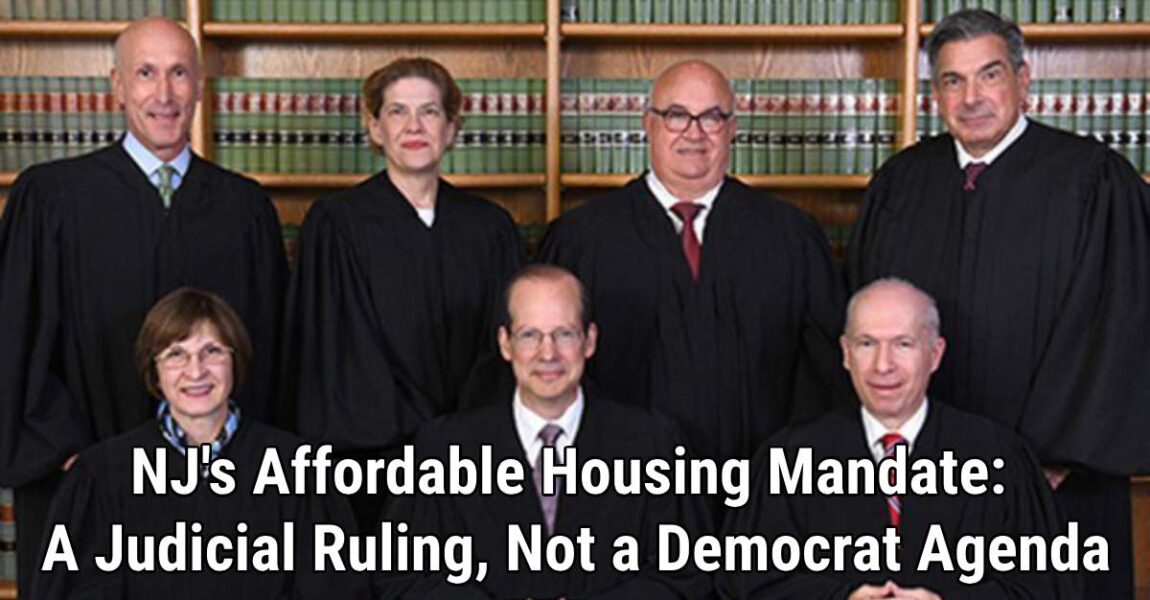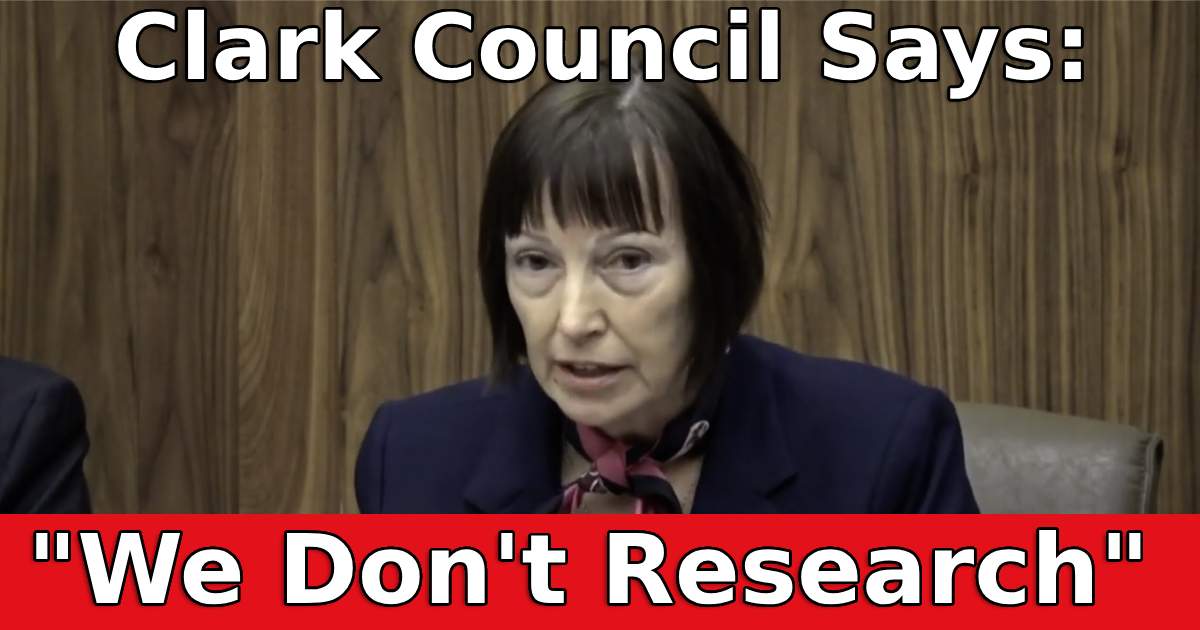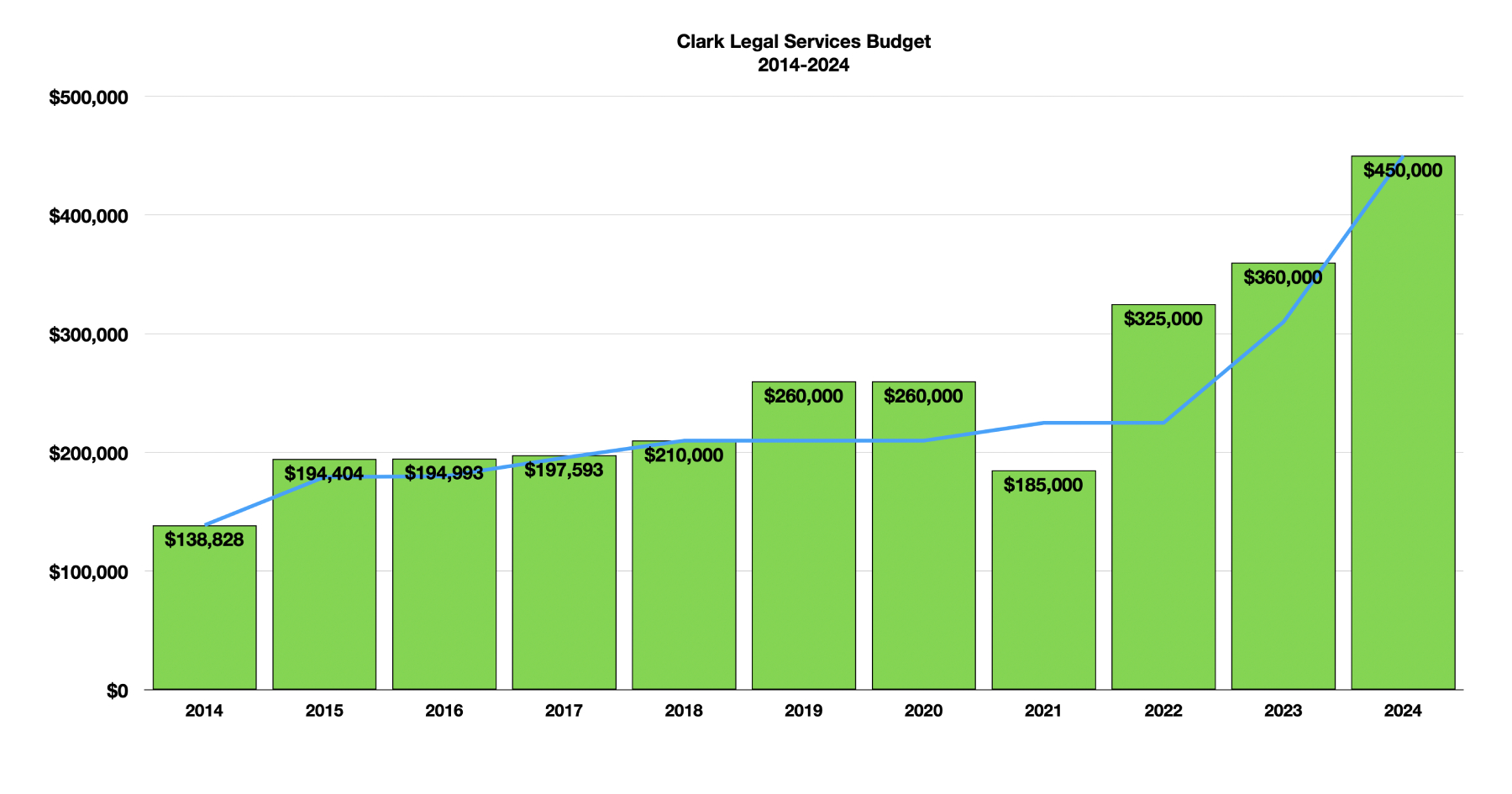
When we hear about affordable housing mandates, it’s easy to think that they are the result of Democratic lawmakers or governors in Trenton. But the truth is, these housing requirements are not because of political leaders—they come from decisions made by the courts, and they’re based on the New Jersey state constitution.
The Mount Laurel Decision
The push for affordable housing in New Jersey comes from a series of court decisions called the Mount Laurel cases. In the 1970s and 1980s, the New Jersey Supreme Court ruled that every town in the state must do its part to provide housing for people who can’t afford expensive homes. The court said that towns couldn’t use zoning laws to keep low-income families out. They based this decision on New Jersey’s state constitution, which promises fairness and equal rights for all citizens.
These court rulings are judicial decisions, which means they are made by judges, not lawmakers or governors. The court was simply interpreting the state’s constitution and deciding what was fair and legal.
Republican Support for the Fair Housing Act
In 1985, New Jersey passed the Fair Housing Act to address these court rulings. But here’s an important fact: it wasn’t a Democrat who signed this law. Republican Governor Tom Kean is the one who put his signature on the Fair Housing Act. Governor Kean, a conservative leader, understood that the law was necessary to meet the requirements set by the court. This act created a system to help towns meet their affordable housing obligations.
Who Appointed the Judges?
Another key point is the political background of the judges who made the Mount Laurel decisions. Five of the 6 justices of the New Jersey Supreme Court, who ruled that towns had to provide affordable housing, were appointed by Republican governors. These judges were not part of a liberal movement. They were interpreting the New Jersey constitution as it was written, and they believed their rulings were needed to ensure fairness in housing across the state.
Legislation vs. Judicial Decisions
There’s an important difference between laws made by politicians and decisions made by judges.
Legislation is created by elected officials, like members of the New Jersey State Legislature. They write and pass laws, which are then signed by the governor.
Judicial decisions, on the other hand, come from the courts. Judges interpret the constitution and make rulings based on what it says. In this case, the New Jersey Supreme Court ruled that affordable housing was a constitutional right based on their interpretation of state law.
The affordable housing requirements in New Jersey are not the result of Democratic lawmakers or governors trying to push an agenda. They come from court rulings, based on our state’s constitution, and the system for managing them was signed into law by a Republican governor.
So, when we talk about affordable housing, it’s important to understand that this is a legal issue, not a political one. The courts, interpreting the constitution, have decided that every town must do its fair share to provide homes for people of all income levels. It’s not something we can just blame on one political party.
2017 Affordable Housing Decision
In 2017, the New Jersey Supreme Court made a major decision about affordable housing. This ruling affects towns all across the state, including Clark, and it wasn’t driven by lawmakers or political parties. Instead, it came from the court and is based on New Jersey’s constitution, just like past rulings.
Why Did This Case Happen?
For years, New Jersey towns have been required to provide affordable housing. This all started with the Mount Laurel cases, where the court said towns can’t use zoning laws to keep low-income families out. The Council on Affordable Housing (COAH) was created to manage this, but COAH stopped working in 2015 because of political disagreements.
Without COAH, the courts had to step in again. In 2017, the New Jersey Supreme Court decided that towns like Clark still had to meet their affordable housing obligations, even though COAH was no longer running things. This meant Clark and other towns had to come up with new plans for affordable housing.
Who Made the Decision?
The 2017 decision was made by the New Jersey Supreme Court, and here’s who the justices were:
Chief Justice Stuart Rabner – Appointed by Democratic Governor Jon Corzine
Justice Jaynee LaVecchia – Appointed by Republican Governor Christine Todd Whitman
Justice Barry Albin – Appointed by Democratic Governor James McGreevey
Justice Anne Patterson – Appointed by Republican Governor Chris Christie
Justice Faustino Fernandez-Vina – Appointed by Republican Governor Chris Christie
Justice Lee Solomon – Appointed by Republican Governor Chris Christie
Justice Walter Timpone – Appointed by Republican Governor Chris Christie
As you can see, most of the justices who made this decision were appointed by Republican governors.
What Does This Mean for Clark?
The 2017 ruling means that Clark, like all New Jersey towns, has to make sure it is providing enough affordable housing. This could lead to new developments in the town that include housing for low- and moderate-income families. Some residents worry this could increase traffic, put more stress on schools, or change the character of the town.
But it’s important to understand that this isn’t something created by Democratic lawmakers. It’s the result of court rulings going back decades, based on the New Jersey constitution. The courts are simply making sure towns follow the law.
Under Which Governor Did This Happen?
This decision happened while Republican Governor Chris Christie was still in office. Governor Christie, though not directly involved in the court case, appointed four of the justices who made this decision. This shows that the affordable housing issue is not a simple political fight between parties—it’s something the courts are managing based on constitutional rights.
The Bottom Line
The 2017 affordable housing decision is a continuation of court rulings that started decades ago. It’s not the result of new laws or political agendas, but of judges interpreting the New Jersey constitution. While it may feel like this is being “forced” on towns like Clark, it’s important to remember that this is a legal matter, not a political one, and it’s being handled by justices appointed by both Democratic and Republican governors.
Affordable housing is a complicated issue, but it’s one that affects all towns in New Jersey, including ours. Understanding the reasons behind it can help us better prepare for the future.


